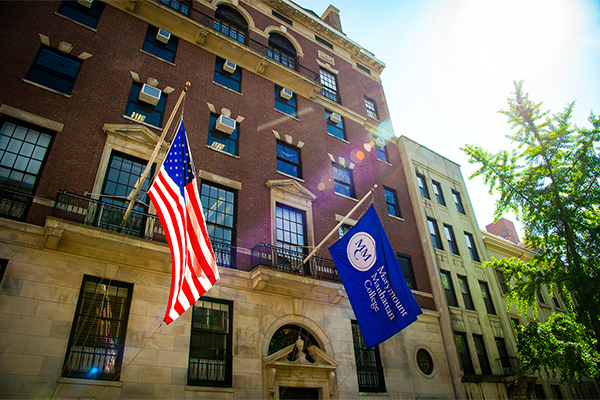Northeastern University and Marymount Manhattan College merger FAQ
Last updated: May 29, 2024

We will continue to update this FAQ with resources and information as they become available.
Why is Marymount Manhattan College pursuing a merger with Northeastern University?
MMC’s Board of Trustees unanimously voted to pursue this opportunity after completing a thoughtful, deliberative, and thorough process to explore ways to preserve MMC’s mission as an institution of higher learning for the long term.
Institutions across the country are confronting significant challenges regarding enrollment and finances. This is particularly true for small, private liberal arts colleges, including MMC. Recognizing these mounting challenges, MMC’s Board of Trustees proactively sought out a plan to ensure the continuation of the core elements of MMC for generations to come.
When will the merger be completed?
The merger has been approved by the governing boards of both institutions. Its completion is subject to state and federal regulatory approvals. The timeline for these approvals is not yet certain, but the merger is expected to occur in stages over the coming months. Under the terms of the agreement, upon completion of the merger, Northeastern will assume all of MMC’s assets and liabilities.
What will happen to the Marymount Manhattan College name and campus?
Once the merger is complete, the new entity will be called Northeastern University – New York City. Northeastern values MMC’s legacy and intends to preserve and enhance MMC’s East 71st Street campus for generations to come. Certain named spaces, including the Judith Mara Carson Center for Visual Arts and the Theresa Lang Theatre, will be retained as part of Northeastern University – New York City.
How will the merger affect MMC’s current degree programs?
Northeastern and MMC will work together to map existing degree programs into Northeastern’s curriculum. Enrolled and admitted students at the time of the merger will continue to make academic progress in their chosen field(s) of study. In the event that program offerings are changed, students will receive individualized guidance and support to ensure a pathway toward degree completion.
Will Northeastern University – New York City offer expanded undergraduate or graduate degree programs in the future?
Northeastern is committed to expanding opportunities for undergraduate and graduate education and lifelong learning, and will continue to evaluate offerings across its global system, including the New York City campus. Over time, enrollments could span a range of academic disciplines, including those that align with the unparalleled economic ecosystem that is New York City.
How will the merger affect tuition and financial aid for currently-enrolled MMC students?
Consistent with the agreement, students enrolled at MMC at the time of the merger will not incur additional tuition or fees apart from customary annual increases. All existing financial aid awards will be honored.
How will the merger affect the employment of MMC faculty and staff?
All full-time MMC faculty members at the time of the merger will become Northeastern faculty and receive one-year contracts, with the option to be considered for available tenured, tenure-track and non-tenure-track positions. All staff employed by MMC upon the effective date of the merger will become employees of Northeastern University. Staff positions will be evaluated based on the demand to support the mission and operations of Northeastern University – New York City, which are expected to grow over time.
How will Northeastern University – New York City preserve MMC’s unique legacy?
As part of the merger, Northeastern will establish a center that reflects the strengths and traditions of MMC. Northeastern will also retain MMC’s Bedford Hill and Taconic College prison education programs.
Why is Northeastern continuing to grow its global network of campuses?
The development of the global university system has strengthened Northeastern in myriad ways, including our financial health, demand for our educational offerings, faculty recruitment, philanthropic opportunities, and brand visibility. Most importantly, our multi-campus network has expanded the impact of our teaching and research. The addition of a New York City campus will further amplify all of these benefits, while also providing powerful differentiation at a time when higher education is undergoing profound changes.